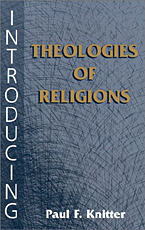"It is clear that many university-educated persons in the West and elsewhere are convinced that religious traditions are not reliable ways of stating the truth about the universe. Indeed, on the part of many, it is an axiom that religion leads to conflict, backwardness, superstition, and hatred. To what extent should Christians (or Jews, Muslims, or Buddhists for that matter) agree with such views? If one lets these legitimate criticisms of religion into one's tradition, does their point of view constitute an acid that not only scours away abuses and outdated thinking but also may corrode even the core attitudes one needs to enter into religion as mystery and spirituality? These are questions that, even when they are not on the surface in discussions that follow, make many theologians and religious teachers uneasy with modernity.
"Still, multiplicity from atoms to molecules to plants to bugs to humans is what science today shows us is necessary for the existence and functioning of the world. Out of the chaos comes new and different ways for responding to developmental dead ends and crises. Reality is intrinsically complex, rich, intricate, mysterious. As Edward Schillebeeckx puts it, plurality is not just a 'matter of fact' but a 'matter of principle.' If we boil the 'many' down to 'one,' we would harm ourselves and maim the world. 'Logically and practically,' Schillebeeckx says, 'multiplicity now takes priority over unity.'
"And yet awareness of pluralism does not lead simply to a total celebration of diversity; nor is the pluralism without its problems. Many are troubled by the way relativity is easily equated with a relativism that has no room for discussing truth-claims and degrees of value. I believe a conviction is growing that the many religions cannot exist side-by-side as non related, sovereign bodies. Do not, many ask, the crises of our age constitute a call to the religions to cooperate in their solutions? Can the many religions legitimately live in lazy tolerance, or, even worse, in a state of warfare? If they do so, can humanity's and earth's environmental problems be overcome? Schillebeeckx again helps us draw conclusions as to what this means for religious persons: 'The multiplicity of religions is not an evil which needs to be removed, but rather a wealth which is to be welcomed and enjoyed by all. . . . There is more religious truth in all religions together than in one particular religion. . . . This also applies to Christianity.'
"It would seem that the religions of the world have to come together, not to form a new, singular religion but to form a dialogical community of communities. The most appropriate image for the religious future of humankind is perhaps to be found not in pictures of thriving churches, synagogues, temples, and mosques but in what the world witnessed and thousands experienced at the World Parliament of Religions in Chicago in 1993 and Cape Town in 1999. Here representatives of the major religious communities of the world gathered to affirm and practice the need to talk to and listen to each other. They were a dialogical community on an international scale, imaging what can also take place on the local scene."
